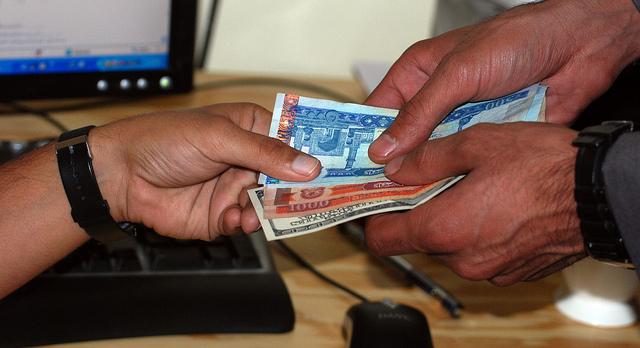BAMYAN CITY (Pajhwok): The Afghanistan Independent Human Rights Commission (AIHRC) office in central Bamyan province said on Tuesday most residents were unhappy with the behaviour of Justice Department staff.
AIHRC Director Roohullah Farogh said the law was not being implemented within the department and that was why women rights violators remained unpunished and cases of abuse could not be investigated properly.
Brazen corruption existed in the provincial government, particularly in the Justice Department. Many applicants complained of graft, but others remained tightlipped for fear of being victimised, he alleged.
Farogh said the commission had shared the issue with the governor and asked him to eradicate the menace of corruption. But residents, who cannot afford to grease judicial staff palms, continue to encounter multiple problems.
A resident, who wished to go unnamed, said the applicants had no option but to bribe government officials for the speedy disposal of their cases. Most of government departments refused to process applicationsif bribes were not paid, he added.
“Initially, they say they don’t have time and ask applicants to come after a few days. If someone goes there after some days, they are asked to wait for their turns. The officials concerned say they have too much work to do.”
About his own case, the man he had been visiting officials in Bamyan City and Kabul for four years, but no headway can occur unless government servants were bribed.
He said government officials, who avoided taking bribes directly, had their touts outside the court. The agents tell litigants their cases could not proceed until they paid illegal gratification.
Mohammad Hassan Asadi, a provincial council member, acknowledged most people complained against corruption and misbehaviour by the Justice Department employees. But no one took any step to resolve the problems, he regretted.
He pointed out that staff did not receive bribes directly,using other methods to receive money from applicants. In this way, no one could bring evidence against any government employee involved in taking bribes.
The public representative believed the role of people in was vital in eradicating graft. Whenpeople stopped giving bribes, no government official would summon the courage to seek backhander, he argued.
He said corruption began with giving government officials gifts and presents for the swift trial of their cases. The role of civil society is important in curbing the practice.
Abdul Wahab Alkozai, Bamyan appellant attorney, did not deny corruption. He promised investigations and arrest of the corrupt if any evidencewas found against them. However, he noted such complaints usually came from those who claims were thrown out.
The Bamyan attorney office was currently faced with a heavy workload as more than 500 officers of the education department were under investigation, Alkozai said,linking delays to the workload.
Education DirectorMohammad Reza Ada and the education manager of Shiberdistrict were detained some days ago on charges of embezzling 90 million afghanis. Six other managers have been banned from travelling abroad.
Alkozai continued the 90 million afghanis had been allocated for retired and working teachers. Most of the retired teachers are either not eligible or have resumed teaching.
Education Director Mohammad Ayub Amirisaid pension was an internal process of the Ministry of Education,involving finance and administrative departments. The attorney office has identified some problems in the departments of the MoE, he added.
The attorney office, currently investigating the education manager for Shebar district, promised teachers and managers elsewhere would also be probed in due course of time.
Afghanistan was raked the third most corrupt country in the world in 2015. A year ago, the country was judged as the fourth most corrupt country.According to the Transparency International, 50 percent of Afghans believe $4 billion was paid in bribes in Afghan government offices in 2015.
The survey that covered 12 government and non-government offices shows most of bribes were paid by the poor.Only 40 percent of Afghans in 2009 believed $4 billion was paid bribes. The percentage increased to 50 percent in 2012.
Bamyan governor’s spokesman, Abdur Rahman Ahmadi, agreed: “People are increasingly complainingof corruption in these organs. The government is dealing patiently with the issue, trying to find evidenceso that judicial officials are not defamed.”
He explained four attorneys suspected of involvement corruption had been transferred to other provinces and three others jailed on fraud charges in the past few years.
The agriculture and livestock department is also accused of corruption, he said, adding local government decided to assess the performance of the agriculture department and investigate possible corrupted officials there.
About the nature of corruption, Ahmadi said that budget of some of agricultural projects implemented have been embezzled as well as some projects implemented by foreign organizations also involved by corruption.
He added the Bamyan government was decisive against corruption and used several ways for transparency of procedures. The local government has timely provided its annual report to the nation, he said.
Afghan Civil Society Forum (ACSF) members in Bamyan confirmed having seen graft, injustice, misuse of authority and appointments in violation of merit to government offices.
ACSF headHussain Dad Ahmadi said there were two committees tasked with reporting corruption in Bamyan assessing government offices. The watchdogs include representative from the governor’s house, provincial council and ACSF members.
Members of these bodies discuss problems including corruption in government office on a monthly basis.He urged residents of the province to report corruption and sharethe issue with relevant state organs.
nh/mds/mud








GET IN TOUCH
NEWSLETTER
SUGGEST A STORY
PAJHWOK MOBILE APP